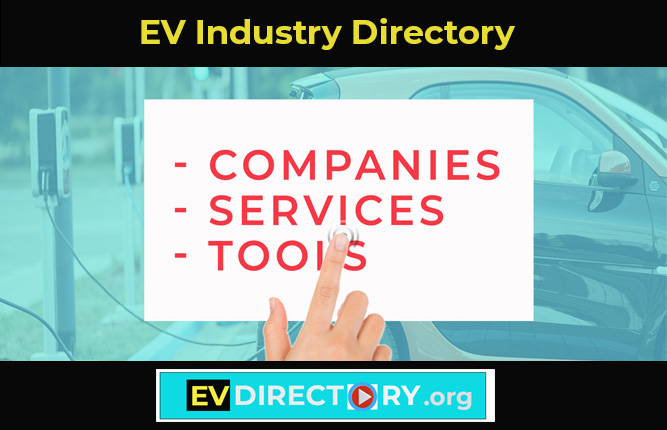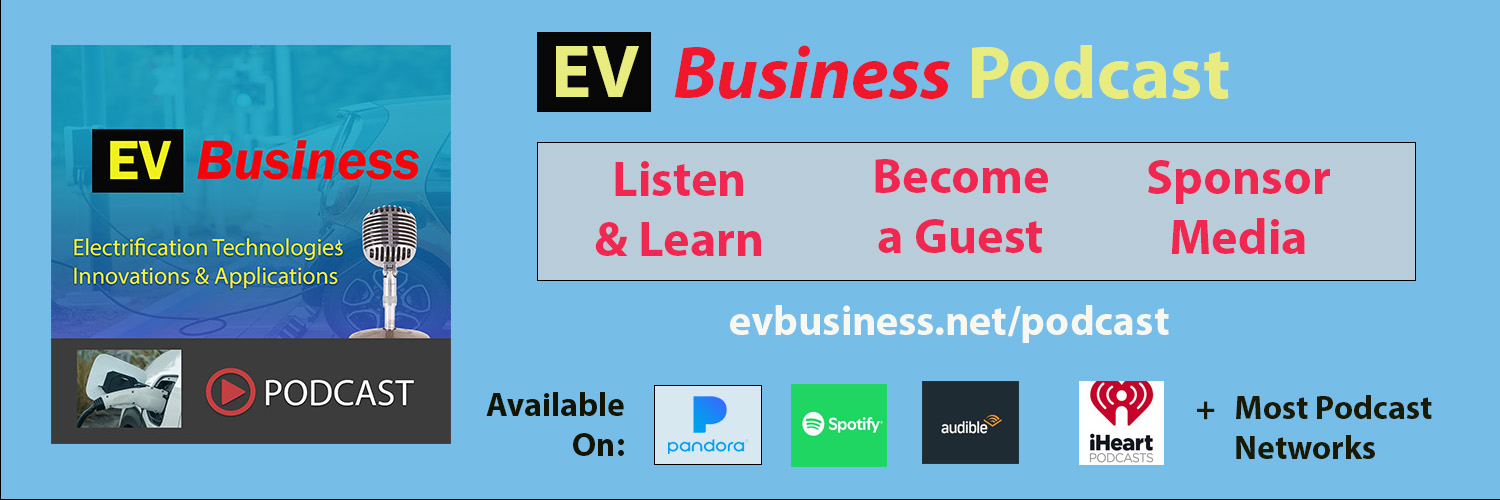EV app development companies create software applications that run on the eclectic vehicle operating systems EVOS allowing them to monitor, control and interact with devices, systems and services. EV app development companies create apps that can manage vehicle components and provide advanced features such as driving behavior analytics, vehicle diagnostics, and cloud integration for seamless updates and data synchronization. Apps often include robust data security, multilingual support, and IoT integration for a cohesive smart ecosystem. With their focus on usability, regulatory compliance, and industry expertise, these companies create future-proof solutions, making them essential for EV innovation.
EV App Development Companies List

EV App Development Company List
Appinventiv – Appinventiv is an industry leader in building digital products, ranging from mobile apps to AI-powered software, with expertise in EV app development.
Apps On Demand – Apps On Demand provides smart EV charging solutions, offering on-demand EV charging app development services tailored to unique business needs.
AppsDevPro – AppsDevPro offers expert offshore developers for end-to-end software solutions, including custom EV app development.
BigOhTech – BigOhTech focuses on transforming the electric vehicle experience with advanced EV software solutions, providing custom software development services for electric vehicle makers, fleet operators, and the automotive industry.
Brainvire Infotech – Brainvire is a trusted provider of AI-powered enterprise-level digital transformation solutions, including EV app development services.
Concetto Labs – Concetto Labs provides electric vehicle software development services, enhancing the functionality and usability of electric automobiles with adaptable solutions for the evolving EV industry.
Cubix – Cubix specializes in mobile app, game, and enterprise software development, offering advanced web and mobile solutions for the EV industry.
DeviceBee Technologies – DeviceBee Technologies is an innovative mobile app development agency that helps startups and enterprises with web and mobile experiences, including EV app development.
Fluper – Fluper offers feature-rich EV app development services aimed at improving brand awareness, specializing in custom electric vehicle apps tailored to the specific needs of users and businesses in the EV ecosystem.
Monta – Monta is a Danish EV charger software firm offering solutions to connect and manage charging points, facilitating seamless integration and user interaction.
Moon Technolabs – Moon Technolabs creates EV apps for various business models, including charging station finders, ride-sharing, and fleet management solutions.
MultiQoS – MultiQoS is a leading e-vehicle app development company delivering top-notch solutions to clients globally, focusing on building flexible and reliable electric vehicle applications.
PlugShare – PlugShare is a comprehensive platform providing real-time information on EV charging stations, enabling users to locate, monitor, and manage charging activities efficiently.
Richestsoft – Richestsoft is a top mobile app development company offering enhanced technical experience in building top-class web and mobile application solutions for electric vehicle app development.
RisingMax Inc. – RisingMax Inc. specializes in developing user-friendly, feature-rich EV charging applications to fast-track business growth in the eco-friendly automotive industry.
SparxIT – SparxIT offers end-to-end EV app development services, including smart charging apps, trip planners, and energy management solutions.
Splend – Splend is a Sydney-based start-up providing subscription-based electric vehicle rentals, focusing on empowering rideshare and delivery drivers with EV solutions.
Stormotion – Stormotion specializes in custom EV charging app development, providing seamless user experiences for drivers to find and use charging stations, monitor vehicle status, and manage accounts efficiently.
Techno Derivation – Techno Derivation is at the forefront of electric vehicle software development, utilizing cutting-edge technology and advanced techniques to develop high-performance, dependable EV software solutions.
EV App Development Company Key Features and Capabilities
Analytics and Reporting
Provides detailed analytics on user behavior, app engagement, and vehicle performance to deliver actionable insights. These analytics help companies make data-driven decisions, optimize content recommendations, and enhance the user experience, ultimately improving customer satisfaction and retention.
Battery Management
Offers real-time monitoring of battery levels, charge status, and range estimation to aid drivers in trip planning. Accurate battery insights ensure users have a clear understanding of their vehicle’s capabilities, reducing range anxiety and improving convenience.
Behavior Analytics
Analyzes driving patterns and offers personalized feedback to improve safety and efficiency. This feature helps drivers optimize their driving habits, reduce energy consumption, and extend the lifespan of their EV.
Charging Station Locator
Provides real-time information about nearby charging stations, including availability, cost, and supported charging speeds. This feature is critical for ensuring drivers can easily locate and access charging infrastructure during their journeys.
Cloud Integration
Enables apps to leverage cloud-based services for remote monitoring, data storage, and over-the-air updates. Cloud integration allows seamless updates, scalability, and real-time data synchronization, ensuring apps stay functional and relevant.
Connectivity Standards
Incorporates reliable communication technologies like Bluetooth, Wi-Fi, and cellular networks for app-to-vehicle interaction. Standardized connectivity ensures smooth and uninterrupted communication between the app and the vehicle.
Cross-Platform Development
Ensures compatibility with multiple vehicle operating systems and devices, including Android, iOS, and proprietary EVOS platforms. Cross-platform apps increase accessibility, making them usable for a broader range of drivers and manufacturers.
Customizability
Allows users to tailor app features to their preferences, regional requirements, or specific use cases. Customizable interfaces and functionality improve user satisfaction and make apps more versatile for diverse audiences.
Customer Support and Maintenance
Provides ongoing technical support, regular updates, and maintenance services to ensure apps remain secure, functional, and up-to-date. Reliable support fosters trust and reduces downtime, leading to higher user retention.
Data Security
Implements encryption and secure communication protocols to protect user data and maintain confidentiality. Strong security measures are essential to prevent data breaches and maintain user trust.
EV App Marketplace
Develops apps compatible with vehicle manufacturers’ and authorized marketplaces, allowing users to easily find, download, and install applications. This feature ensures proper distribution and simplifies app adoption for end-users.
EV Industry Knowledge
Demonstrates familiarity with EV standards, challenges, and consumer needs to create relevant and effective solutions. Expertise in the EV industry ensures apps meet the technical and operational expectations of both users and manufacturers.
EVOS System Compatibility
Designs apps tailored to specific electric vehicle operating systems (EVOS) used by manufacturers. Compatibility ensures seamless integration and functionality with the vehicle’s native software environment.
Fleet Management Features
Provides centralized control and monitoring for multiple vehicles in a fleet. These features streamline operations, enhance efficiency, and simplify maintenance for fleet operators.
Future-Proofing
Designs apps that can evolve with emerging EV technologies and industry trends. Future-ready apps reduce the need for major overhauls and ensure long-term usability.
Global Reach
Develops apps that comply with international standards and regional regulations, ensuring compatibility across diverse markets. Global adaptability broadens the app’s usability and customer base.
Integration Capabilities
Supports integration with third-party APIs for payment gateways, social media platforms, and advertising networks. Integrated apps offer extended functionalities and improve the overall user experience.
IoT Integration
Connects EVs with IoT devices like smart home systems, charging stations, and wearable technology. IoT integration creates a cohesive ecosystem, enhancing convenience and interoperability.
Monetization Options
Offers flexible monetization models, such as subscriptions, in-app purchases, and pay-per-view features. Monetization ensures companies can generate sustainable revenue while providing valuable services.
Multilingual Support
Supports multiple languages and regional content variations, ensuring accessibility for users worldwide. Multilingual apps cater to diverse markets and improve user engagement.
Navigation and Route Planning
Includes EV-optimized routing features with charging stops, estimated travel times, and energy usage predictions. Intelligent navigation minimizes delays and enhances the driving experience.
Regulations and Compliance
Implements tools to manage content and features based on location and legal requirements, ensuring compliance with laws like GDPR or age restrictions. Regulatory compliance builds trust and ensures legal operation in various regions.
Smartphone Integration
Develops apps that connect seamlessly with smartphones, allowing users to access features like remote control, notifications, and navigation. Smartphone integration enhances user convenience and app versatility.
Systems Integration
Ensures compatibility with existing EV ecosystems, including charging networks, fleet management systems, and OEM platforms. Smooth integration simplifies operations and enhances system efficiency.
Third-Party Services
Enables features like payment processing, real-time weather updates, and other API-based services. Third-party integrations expand app capabilities and improve user satisfaction.
Update and Maintenance
Provides ongoing support for bug fixes, feature updates, and system enhancements post-launch. Regular updates keep the app functional and competitive in a fast-changing industry.
User Privacy
Ensures compliance with global privacy laws to protect sensitive user information. Prioritizing privacy builds trust and mitigates the risk of legal issues.
User Experience (UX)
Focuses on intuitive design, responsive interfaces, and seamless navigation to create engaging apps. A superior UX increases user satisfaction, retention, and overall app effectiveness.
Vehicle Monitoring and Diagnostics
Delivers real-time diagnostics, maintenance alerts, and performance monitoring to ensure vehicle reliability. This feature helps users stay informed and maintain their EVs effectively.
Vehicle Operating System Expertise
Demonstrates staff knowledge and experience in EVOS software, IoT, and connectivity standards. Technical expertise ensures apps are built to meet the needs of modern electric vehicles.
EV App Development Glossary
Analytics and Reporting – Tools that provide insights into user behavior, app engagement, and vehicle performance to improve decision-making and user experience.
Application Programming Interface (API) – A set of protocols that allow apps to communicate with other software, enabling features like payment processing and real-time updates.
Battery Management System (BMS) – A feature for real-time monitoring of battery health, charge status, and range estimation, essential for efficient EV operation.
Behavior Analytics – Data analysis of driving patterns to provide personalized feedback for improving safety and efficiency.
Charging Infrastructure – The network of charging stations and systems that support EV recharging, which apps can help locate and interact with.
Charging Station Locator – A feature that identifies nearby charging stations with details such as availability, cost, and supported charging speeds.
Cloud Computing – The use of remote servers hosted on the internet to store, manage, and process data for EV apps.
Cloud Integration – The use of cloud-based platforms for remote monitoring, data storage, and over-the-air updates.
Connectivity Standards – Communication protocols, such as Bluetooth, Wi-Fi, and cellular networks, enabling seamless interaction between apps and vehicles.
Cross-Platform Development – Creating software compatible with multiple operating systems like Android, iOS, and EVOS (Electric Vehicle Operating Systems).
Customizability – The ability to tailor app features and interfaces to specific user preferences or regional requirements.
Customer Support and Maintenance – Ongoing technical support and regular updates to ensure app reliability and security.
Data Encryption – A method of encoding data to protect sensitive information in EV apps from unauthorized access.
Data Security – Implementation of encryption and secure protocols to protect sensitive user and vehicle data.
Driver Behavior Monitoring – Features that track and analyze driver habits to provide insights for safer and more energy-efficient driving.
Electric Vehicle Operating System (EVOS) – The software platform used by electric vehicles to manage applications and functionalities.
Fleet Management Features – Tools for managing and monitoring multiple vehicles in a fleet, streamlining operations for businesses.
Future-Proofing – Designing apps to accommodate evolving technologies and industry trends, ensuring long-term usability.
Integration Capabilities – Support for third-party APIs to extend app functionality, such as payment gateways and social media platforms.
Internet of Things (IoT) Integration – Connecting EVs with smart devices and systems, like home chargers and wearables, to create a unified ecosystem.
Machine Learning (ML) – AI-based technology enabling apps to learn from data and improve functionality, such as predictive analytics for EV users.
Multilingual Support – Enabling app accessibility for users worldwide through multiple language options.
Navigation and Route Planning – Tools that provide optimized routes, charging stops, and energy usage predictions for EV drivers.
Over-the-Air (OTA) Updates – Remote updates for apps and EVOS, ensuring features remain up-to-date without manual installation.
Regulations and Compliance – Ensuring apps meet regional legal standards, such as GDPR and other privacy or safety laws.
Smartphone Integration – Seamless connection between apps and smartphones to enhance user convenience with remote control and notifications.
Systems Integration – Compatibility with existing EV ecosystems, such as charging networks and fleet management systems.
Telematics – Technology that combines telecommunications and informatics for vehicle tracking and diagnostics.
Third-Party Services – Features supported by external APIs, such as weather updates, payment processing, and advertising.
User Experience (UX) – Focus on intuitive design, responsive interfaces, and ease of navigation to improve user engagement and satisfaction.
Vehicle Monitoring and Diagnostics – Tools providing real-time performance monitoring, maintenance alerts, and diagnostics to enhance reliability.

